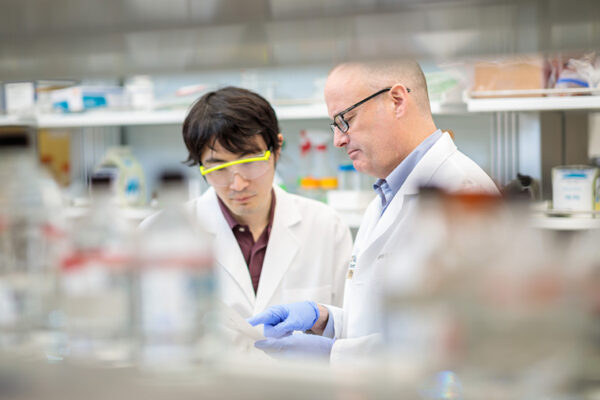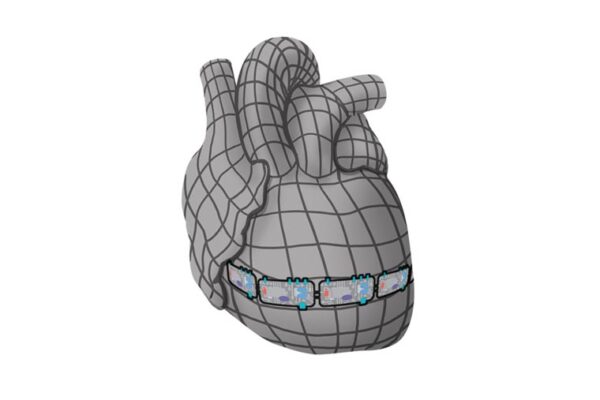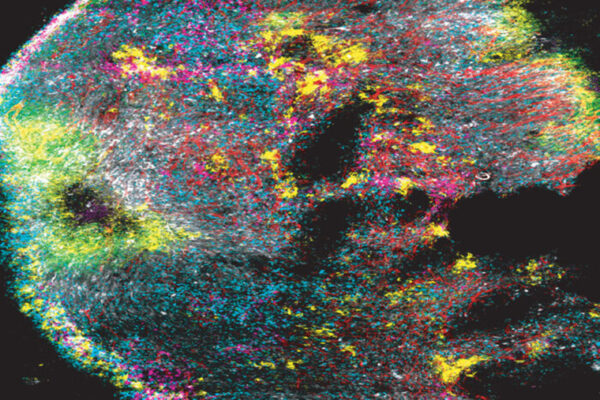New clues found to help protect heart from damage after heart attack
School of Medicine scientists have found a way to spur heart immune cells to promote healing after a heart attack or other cardiac injury. Such a strategy could help prevent the usual inflammation that follows a heart attack and is a common driver of heart failure.
Washington People: Benjamin D. Humphreys
Nephrologist Benjamin Humphreys, MD, PhD, director of the Division of Nephrology at the School of Medicine, is a leading innovator in kidney research. Humphreys seeks to find better treatments to prevent kidney failure, a potentially fatal condition affecting 37 million Americans.
New model of irregular heartbeat could boost drug efficacy
Jonathan Silva, a biomedical engineer in the McKelvey School of Engineering at Washington University in St. Louis, has developed the first computational model that shows the molecular groundwork of a popular drug’s effectiveness in a variety of ways.
Which came first: brain size or drinking propensity?
Contrary to the belief that drinking can literally shrink one’s brain, a new study that includes researchers from Arts & Sciences suggests that a small brain might be a risk factor for heavier alcohol consumption.
New antidepressants on horizon
Medical scientists at the Taylor Family Institute for Innovative Psychiatric Research have pioneered the use of neurosteroid drugs to treat psychiatric illness.
What’s behind the decline in outdoor play?
Mothers in low-income neighborhoods report more physical and social barriers that discourage them from allowing their children to play outside, according to new research from the Brown School at Washington University in St. Louis.
Flu antibody protects against numerous and wide-ranging strains
A human antibody that protects mice against a wide range of lethal flu viruses could be the key to a universal vaccine and better treatments for severe flu disease, according to a new study from Washington University School of Medicine in St. Louis, Icahn School of Medicine at Mount Sinai in New York City, and Scripps Research in La Jolla, Calif.
Surgeon weighs in on textured breast implants
Textured breast implants have been linked to a rare and sometimes fatal cancer. Terence M. Myckatyn, MD, who wrote about the issue in a commentary published Oct. 23 in JAMA Surgery, answers questions about the implants.
Arthritis risk linked to obesity may be passed down through generations
New research in mice from the School of Medicine suggests obesity may increase arthritis risk not only in obese people but in their children and grandchildren, too.
Clues to improve cancer immunotherapy revealed
School of Medicine researchers have demonstrated in a new study that both killer and helper T cells are needed for tumors to be rejected during cancer immunotherapy.
Older Stories









